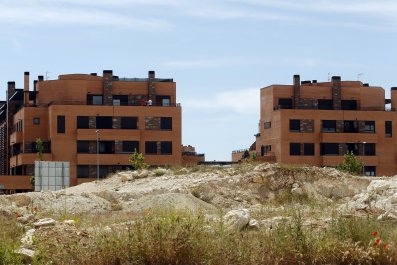In recent years, melatonin supplements have exploded on the market as a tool to help people get to sleep—the Nutrition Business Journal estimated that in 2012 (the most recent year for which data are available) sales reached $260 million; in 2007, that number was just $90 million. Now scientists say the immensely popular pills could help prevent or even reverse osteoporosis. Researchers from McGill University in Montreal found that when old rats were given supplements to regulate their circadian rhythm, their bones became denser and more flexible.
Melatonin is a hormone produced by the pineal gland that controls a person's sleep-wake cycle—levels are typically highest at night. Supplements are usually taken when people are unable to sleep normally, or if their sleep cycle is affected in some other way, such as jet lag. As humans get older, they naturally lose melatonin—which is one reason older people sleep less and the quality of their sleep tends to be diminished.
This is a problem for human bones. "As we age, we sleep less well, which means that the osteoclasts are more active," says Faleh Tamimi, the lead researcher on the project. "This tends to speed up the process of bone breakdown." Osteoclasts are cells that break down bone and reabsorb the material, including minerals like calcium, back into other areas of the body. In healthy adults, that process is balanced by the healthy depositing of new minerals by cells called osteoblasts. This cycle keeps bones strong. But in the case of osteoporosis, the balance gets thrown, with an increase of bone reabsorption. Tamimi and her team suspected that melatonin would help regulate the circadian rhythms of elderly rats, which would in turn reduce the activity of osteoclasts.
And that is exactly what happened. Twenty 22-month-old male rats—the equivalent of a 60-year-old human—were given a diluted version of melatonin supplements for 10 weeks (the equivalent of six human years), at the University of Madrid. At the end of the 10 weeks, the researchers removed the femurs from the treated rats and compared them with a placebo group. They found that the bones of the rats that had been given melatonin had an increased volume and density—and were much more difficult to break.
Tamimi says that some small tests have already been performed on humans, but that larger clinical trials are still needed. In the meantime, however, "the supplements could be recommended to patients with sleep problems that at the same time have osteoporosis."






























